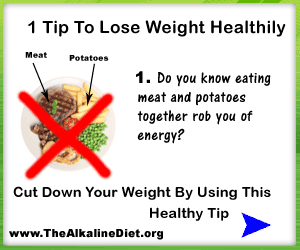Chickenpox - Overview, Causes, Symptoms & Prevention
July 03, 2017
Foodviki
Tweet
Follow
Tweet


You haven't been feeling so great for the last few days, and you've had a runny nose and a cough. Then one morning you wake up and stumble into the bathroom. You look in the mirror with blurry eyes and yikes! You have chickenpox!
Chickenpox, also called varicella, is characterized by itchy red blisters that appear all over the body. A virus causes this condition. It often affects children, and was so common it was considered a childhood rite of passage.
It’s very rare to have the chickenpox infection more than once. And since the chickenpox vaccine was introduced in the mid-1990s, cases have declined.
What Is Chickenpox?
Chickenpox is caused by a virus called varicella zoster. People who get the virus often develop a rash of spots that look like blisters all over their bodies. The blisters are small and sit on an area of red skin that can be anywhere from the size of a pencil eraser to the size of a dime.
You've probably heard that chickenpox is itchy. It's true! The illness also may come with a runny nose and cough. But the good news is that chickenpox is a common illness for kids, and most get better by resting just like you do with a cold or the flu.
And the really good news is that, thanks to the chickenpox vaccine, lots of kids don't get chickenpox at all. Kids who do get it after they've gotten the shot often get less severe cases, which means they get better quicker.
What are the symptoms of chickenpox?
An itchy rash is the most common symptom of chickenpox. The infection will have to be in your body for around seven to 21 days before the rash and other symptoms develop. You start to be contagious to those around you up to 48 hours before the skin rash starts to occur.
The non-rash symptoms may last a few days and include:
fever
headache
loss of appetite
One or two days after you experience these symptoms, the classic rash will begin to develop. The rash goes through three phases before you recover. These include:
You develop red or pink bumps all over your body.
The bumps become blisters filled with fluid that leaks.
The bumps become crusty, scab over, and begin to heal.
The bumps on your body will not all be in the same phase at the same time. New bumps will continuously appear throughout your infection. The rash may be very itchy, especially before it scabs over with a crust.
You are still contagious until all the blisters on your body have scabbed over. The crusty scabbed areas eventually fall off. It takes seven to 14 days to disappear completely.
What Happens When You Have Chickenpox?
Chickenpox may start out seeming like a cold: You might have a runny or stuffy nose, sneezing, and a cough. But 1 to 2 days later, the rash begins, often in bunches of spots on the chest and face. From there it can spread out quickly over the entire body sometimes the rash is even in a person's ears and mouth.
The number of pox is different for everyone. Some people get just a few bumps; others are covered from head to toe. At first, the rash looks like pinkish dots that quickly develop a small blister on top (a blister is a bump on your skin that fills up with fluid). After about 24 to 48 hours, the fluid in the blisters gets cloudy and the blisters begin to crust over.
Chickenpox blisters show up in waves, so after some begin to crust over, a new group of spots might appear. New chickenpox usually stop appearing by the seventh day, though they may stop as early as the third day. It usually takes 10–14 days for all the blisters to be scabbed over and then you are no longer contagious.
Besides the rash, someone with chickenpox might also have a stomachache, a fever, and may just not feel well.
How Does Chickenpox Spread?
Chickenpox is contagious, meaning that somebody who has it can easily spread it to someone else. A person with chickenpox is most contagious during the first 2 to 5 days of being sick. That's usually about 1 to 2 days before the rash shows up. So you could be spreading around chickenpox without even knowing it!
Someone with chickenpox can pass it to others by coughing or sneezing. When he or she coughs, sneezes, laughs, and even talks, tiny drops come out of the mouth and nose. These drops are full of the chickenpox virus. It's easy for others to breathe in these drops or get them on their hands. Before you know it, the chickenpox virus has infected someone new.
Itchy-Itchy, Scratchy-Scratchy
If you are that unlucky person, how do you keep your chickenpox from driving you crazy? They itch, but you're not supposed to scratch them.
These tips can help you feel less itchy:
Foodviki
TweetFollowTweet




You haven't been feeling so great for the last few days, and you've had a runny nose and a cough. Then one morning you wake up and stumble into the bathroom. You look in the mirror with blurry eyes and yikes! You have chickenpox!
Chickenpox, also called varicella, is characterized by itchy red blisters that appear all over the body. A virus causes this condition. It often affects children, and was so common it was considered a childhood rite of passage.
It’s very rare to have the chickenpox infection more than once. And since the chickenpox vaccine was introduced in the mid-1990s, cases have declined.
What Is Chickenpox?
Chickenpox is caused by a virus called varicella zoster. People who get the virus often develop a rash of spots that look like blisters all over their bodies. The blisters are small and sit on an area of red skin that can be anywhere from the size of a pencil eraser to the size of a dime.
You've probably heard that chickenpox is itchy. It's true! The illness also may come with a runny nose and cough. But the good news is that chickenpox is a common illness for kids, and most get better by resting just like you do with a cold or the flu.
And the really good news is that, thanks to the chickenpox vaccine, lots of kids don't get chickenpox at all. Kids who do get it after they've gotten the shot often get less severe cases, which means they get better quicker.
What are the symptoms of chickenpox?
An itchy rash is the most common symptom of chickenpox. The infection will have to be in your body for around seven to 21 days before the rash and other symptoms develop. You start to be contagious to those around you up to 48 hours before the skin rash starts to occur.
The non-rash symptoms may last a few days and include:
fever
headache
loss of appetite
One or two days after you experience these symptoms, the classic rash will begin to develop. The rash goes through three phases before you recover. These include:
You develop red or pink bumps all over your body.
The bumps become blisters filled with fluid that leaks.
The bumps become crusty, scab over, and begin to heal.
The bumps on your body will not all be in the same phase at the same time. New bumps will continuously appear throughout your infection. The rash may be very itchy, especially before it scabs over with a crust.
What Happens When You Have Chickenpox?
Chickenpox may start out seeming like a cold: You might have a runny or stuffy nose, sneezing, and a cough. But 1 to 2 days later, the rash begins, often in bunches of spots on the chest and face. From there it can spread out quickly over the entire body sometimes the rash is even in a person's ears and mouth.
The number of pox is different for everyone. Some people get just a few bumps; others are covered from head to toe. At first, the rash looks like pinkish dots that quickly develop a small blister on top (a blister is a bump on your skin that fills up with fluid). After about 24 to 48 hours, the fluid in the blisters gets cloudy and the blisters begin to crust over.
Chickenpox blisters show up in waves, so after some begin to crust over, a new group of spots might appear. New chickenpox usually stop appearing by the seventh day, though they may stop as early as the third day. It usually takes 10–14 days for all the blisters to be scabbed over and then you are no longer contagious.
Besides the rash, someone with chickenpox might also have a stomachache, a fever, and may just not feel well.
How Does Chickenpox Spread?
Chickenpox is contagious, meaning that somebody who has it can easily spread it to someone else. A person with chickenpox is most contagious during the first 2 to 5 days of being sick. That's usually about 1 to 2 days before the rash shows up. So you could be spreading around chickenpox without even knowing it!
Someone with chickenpox can pass it to others by coughing or sneezing. When he or she coughs, sneezes, laughs, and even talks, tiny drops come out of the mouth and nose. These drops are full of the chickenpox virus. It's easy for others to breathe in these drops or get them on their hands. Before you know it, the chickenpox virus has infected someone new.
Itchy-Itchy, Scratchy-Scratchy
If you are that unlucky person, how do you keep your chickenpox from driving you crazy? They itch, but you're not supposed to scratch them.
These tips can help you feel less itchy:
- Keep cool because heat and sweat will make you itch more. You might want to put a cool, wet washcloth on the really bad areas.
- Trim your fingernails, so if you do scratch, you won't tear your skin.
- Soak in a lukewarm bath. Adding some oatmeal to your bath water can help relieve the itching.
- Have your mom or dad help you apply calamine lotion, which soothes itching.
Don't Scratch
Scratching the blisters can tear your skin and leave scars. Scratching also can let germs in, and the blisters could get infected. If your fever goes higher and an area of your skin gets really red, warm, and painful, tell an adult right away. You'll need to see a doctor because you could have a skin infection.
While you have the chickenpox, a pain reliever like acetaminophen might help you feel better, but let your parents help you with this. Medicines and creams that may stop the itch can also be helpful.
Do not take aspirin because it can cause a rare but serious illness in kids called Reye syndrome.
It doesn't usually happen, but let your parents know if you feel especially bad. Sometimes, chickenpox leads to other, more serious illnesses.
Most kids don't have any major problems and get better in a week or two. And when all the blisters have scabs, you're not contagious anymore and you can go back to school! In a few days, the scabs will fall off. And once you've had chickenpox, it's unlikely you'll ever get it again.
Get a Shot, Avoid the Dots!
Not long ago, 3 million people got chickenpox each year in the United States. But now that kids receive the shot, fewer and fewer people get chickenpox.
Have you had the chickenpox vaccine? You might not remember because it's often given at age 1. But you can get it when you're older, too. Ask your mom or dad if you've had yours. You'll be glad that you did if chickenpox starts making its way around your school!
How can chickenpox be prevented?
The chickenpox vaccine prevents chickenpox in 98 percent of people who receive the two recommended doses. Your child should get the shot when they are between 12 and 15 months of age. Children get a booster between 4 and 6 years of age.
Older children and adults who haven’t been vaccinated or exposed may receive catch-up doses of the vaccine. As chickenpox tends to be more severe in older adults, people who haven’t been vaccinated may opt to get the shots later.
People unable to receive the vaccine can try to avoid the virus by limiting contact with infected people. But this can be difficult. Chickenpox can’t be identified by its blisters until it has already been spreadable to others for days.
























0 comments